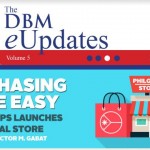CRM tools are critical to a business’s triumph, as they permit companies to gather leads, change prospects into clienteles and cross-sell products and services to current customers. New sets of existing CRM tools are on the market with new features that can make a small business owners consider switching to and spending in a different CRM system is worth the cost and effort.
In many cases, switching is worth the cost when the business ponders on the added functionality that their business will appreciate. Many new CRM tools integrate finance and marketing software programs. This means that users do not need to complete supporting sales tasks using diverse programs.
As great as these new features are, there is one that all trades should look for when picking a new CRM software program: a high degree of customization. Here are just some of the explanations why businesses should only choose CRM programs that they can customize.
Differences in Business Practices
Companies function too in a different way from each other to depend on an out-of-the-box CRM tool that lacks customization selections. For example, the same highly customizable CRM tool can be used for a for-profit education institution to trace graduate job placement efforts and a non-profit organization trying to track donors for an upcoming moneymaker if the fields themselves could be appropriately customized. Instead of “Lead” the CRM tool could group the names under a “Donor” or “Graduate” tab. Although simple, this is just one example how a customized CRM tool could better mirror the actual workflow of an organization.
Targeted Customer Records
The types of data your organization needs to be successful within the sales pipeline is different. For instance, some organizations collect company names for their sales prospects while others enter the first and last names of their connections. Sometimes a lot of this information is not recognized early in the sales cycle. Many CRM tools require one type of field to be input into each record in order to be saved. For example, Zoho’s CRM tool needs that a last name be entered for each record and will not create a new item deprived of it.
If an organization starts its sales cycle by identifying target companies without a singular contact, some other type of information will need to be entered into the “Last Name” field, which causes inexactitudes within the database. This is why it is important to be able to customize each field of a CRM tool, even the required ones, to better reflect how an organization actually operates. With the ability to better aim customer records, companies don’t have to alter their own workflow to meet the needs of the CRM tool.
Ability to Evolve or Adapt
Businesses naturally change over time to come across market demands or evolving customer needs. This often means that the CRM tool selected today may not match what is needed in a business a few years from now. A highly customized CRM tool can be modified to a business’s needs in the future. Switching to a new CRM tool is a hassle, as businesses must train end users on how to use the system in addition to transitioning the actual client data over to the new software program. For this reason, it is important to find a CRM tool that can adjust to changing business needs over time.
Deciding to shift existing operations to a new CRM tool is not a decision that should be taken lightly. However, it may be worth the added cost or effort to move to a CRM tool that can better encounter a company’s needs. A highly customizable CRM tool is one example of a CRM tool worth the effort, as it allows businesses to use a system that thoroughly matches what they need.
Source: http://it.toolbox.com/blogs/insidecrm/why-highly-customizable-crm-programs-are-in-demand-71691





